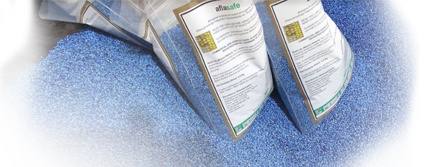ReCMA–BF is out to beat aflatoxin: the sum is greater than its parts as Burkina Faso rallies to fight aflatoxin contamination in joint action. The country has enlisted Aflasafe BF01 as a co-combatant, as it continues to raise awareness of the toxic enemy at the gate.
With momentum growing in this unified national campaign against aflatoxin, we talk to a key figure in the fight – keep reading for inside intelligence on the latest battle plans.
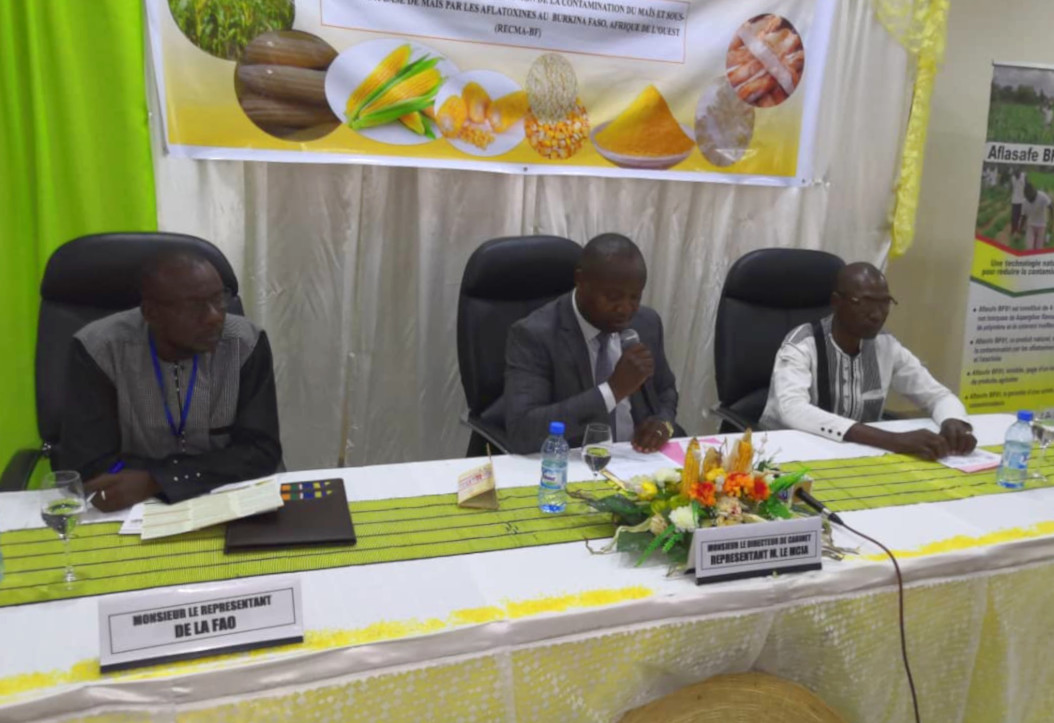
The Burkinabé battle against aflatoxin has begun in earnest. We could not be happier to report that the ReCMA–BF project we mentioned in April, on reducing aflatoxin contamination in maize and maize products in Burkina Faso, was officially launched on 29th July 2019 in Ouagadougou. ReCMA–BF stands for Réduction de la contamination du maïs et sous-produits à base de maïs par les aflatoxines au Burkina-Faso.
Country-wide in scope and with a sweeping global vison, ReCMA–BF will comprehensively tackle the negative impacts of aflatoxin in a multi-faceted approach focusing on public health, food security, access to markets and farmers’ incomes. To achieve this, the project will, among others, raise awareness, build aflatoxin-testing capacity within Burkina Faso, and most importantly promote effective aflatoxin management techniques, of which Aflasafe BF01 will be one.
ReCMA–BF is managed by UNMO/CIR (Unité Nationale de Mise en Oeuvre du Cadre Intégré Renforcé) of Burkina Faso’s Ministry of Trade, Industry and Crafts (Ministère du Commerce, de l’Industrie et de l’Artisanat), with its crucial role in exports, and is funded by the Standards and Trade Development Facility (STDF). The creation of the project was initiated and catalysed by the CPF (Confédération Paysanne du Faso), the country’s apex body representing farmer organisations and agricultural producers. CPF is highly influential in Burkina Faso, at the heart of anything and everything to do with farmers or agricultural policy, so we are thrilled to have them joining the battle against aflatoxin as powerful partners in the project. CPF has been an early Aflasafe champion and adopter, working with us to set up demonstration plots for farmers.
We wanted to hear more about this exciting approach bringing the Burkinabé together, and who better to give us the inside intelligence than Mr Issoufou Porgo, Executive Secretary of CPF and key technical person at ReCMA–BF? Read on for his insights on ReCMA’s plans for the battle ahead…
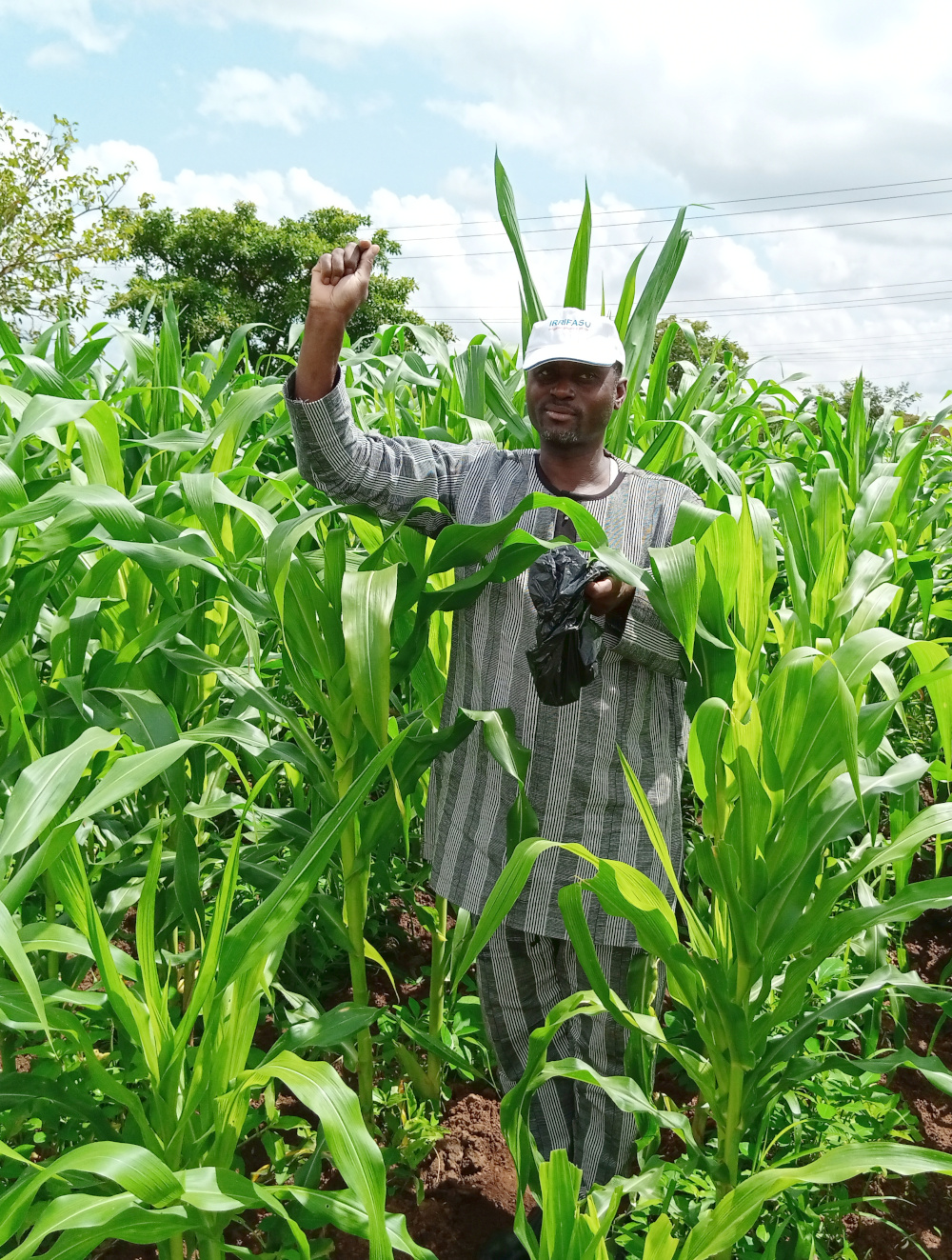
What is ReCMA–BF’s vision for Burkina Faso in terms of the next few years?
Within the next two to three years, our vision is to have a common national approach for the management of aflatoxin contamination in maize and maize products, bringing together different organisations and groups.
We’ve previously seen various activities, largely focussed on postharvest contamination, but these have been small-scale and piecemeal, and so not powerful enough in effectively controlling aflatoxin. For all the relevant organisations and institutions to come together in a single vision for aflatoxin in maize is something very new for the country.
Exciting times! What’s the impetus for this to happen now?
Aflatoxin contamination is not a new problem in Burkina Faso. In the past, we’ve had difficulties selling our produce on the market, which has led to some action on aflatoxin in groundnuts and sorghum, and some discussion with people talking more about it.
However, awareness of the issue is much newer in maize. We’re seeing a lot of rejection of maize by different buyers. We’re struggling to sell to international markets, as well as organisations like the World Food Programme, breweries using maize to make beer, and so on. That’s starting to stimulate concerted action along the maize value chain.
From your perspective, what are the key challenges ahead for ReCMA–BF?
These are the three major challenges that we are facing right now. The first is reaching value chain actors with awareness of the issue. Apart from a few farmer organisations that have faced rejection, the large majority of farmers – and other actors such as transporters, traders and so on – are not really conscious of the importance of aflatoxin.
The second is how we can firmly and permanently entrench aflatoxin management into something that is commonplace and regular. In other words, we want it to become completely routine and part of standard operating procedure across the country, rather than a short-term project-based activity.
The third challenge is making Aflasafe widely available and accessible at the village and farmer level, just like, say, fertiliser.
Those are big challenges – how will ReCMA–BF tackle them?
The essence of ReCMA–BF’s approach is to bring organisations together to work on these challenges strategically and effectively across the country. One early activity for us is to draft and widely disseminate a guide on good agronomic practices in both French and key local languages, focussing on aflatoxin management and using Aflasafe. This will help us get the information out there and promote awareness.
Secondly, because government institutions are involved in ReCMA–BF, we can work with the national network of training centres for technicians and agronomic engineers, to make sure they know about the issue and provide them with training on aflatoxin management. Those people who have been trained will then go out into the field in extension roles and train farmers, and we will start to build good management of aflatoxin into our routine agricultural practice across the country.
A third approach is in terms of advocacy. We will be reaching out to the public authorities, and talking to government ministers and other decision-makers, to ask them to make Aflasafe part of the subsidy programme for smallholder farmers, like pesticide and fertiliser. This would be a huge step in making sure Aflasafe is available to all farmers.
Together, these solutions will significantly improve awareness of aflatoxin contamination and how to manage it, and accessibility of Aflasafe for smallholder farmers. At the same time, Aflasafe distributors will ensure Aflasafe is available from agro-dealers so that it reaches farmers.
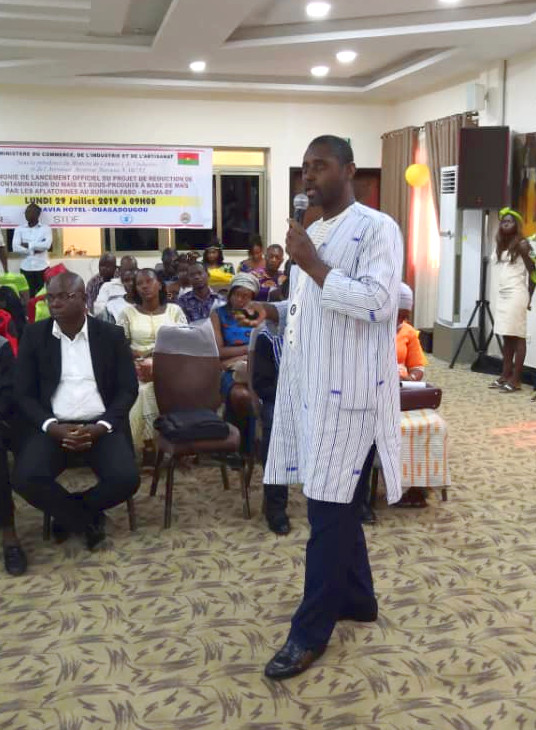
It sounds like Aflasafe is an integral part of ReCMA–BF’s plans?
Indeed it is! In our vision, we see the fight against aflatoxin on a holistic basis. We need to use Aflasafe at the field level, as this is where the aflatoxin problem starts, and Aflasafe is able to reduce contamination from that point on. We also need to deploy other solutions alongside to avoid contamination at harvest and postharvest, as aflatoxin can occur anywhere along the maize value chain. Aflasafe is integral to the actions we have planned.
What kind of support do you need from ATTC and the Aflasafe team?
The first major support we need is in terms of training, sensitisation, and providing information on reducing aflatoxin and using Aflasafe. We look forward to working together on awareness and training across the maize value chain, including farmers, the extension agents who work with them, maize traders, transporters, and so on.
We also anticipate that the team will facilitate access to Aflasafe. Another important activity is to create and manage more demonstration plots across all regions of Burkina Faso so farmers can see how Aflasafe works.
It’s also the case that maize is not the only crop affected, and right now we’re thinking a lot about the issue of aflatoxin contamination in sesame, after rejections of our exports in September 2019 by Japan. Farmer organisations are hoping and expecting that an Aflasafe product will be available to protect other crops like sesame in the near future, whether that means testing and approving Aflasafe BF01 in those crops or developing a similar product.
Great strategies on meeting the challenges. How about opportunities – do you see any?
One very important opportunity for us to bring about change is the fact that some organisations are now fully aware of aflatoxin – the dangers it causes and the limits it is placing on trade. Those include farmer organisations like CPF, certain NGOs and certain state organisations like ABNORM [Agence Burkinabé de Normalisation, de la Métrologie et de la Qualité], which is responsible for developing standards and ensuring quality control of goods – as well as of course the Ministry of Trade, which manages ReCMA–BF. This means that there is a real – and growing – will and eagerness to get to grips with aflatoxin in Burkina Faso.
At the same time, we can see that there is more and more demand for agricultural products, like maize, that are not contaminated with aflatoxin and meet safety standards. This is coming from a wide range of buyers, including food manufacturers, brewers, poultry producers and international exporters, and it’s providing a strong incentive for action.
It sounds like you’re optimistic?
Yes, we are optimistic for the future! Some large farmer cooperatives and other groups are already engaged in the fight against aflatoxin, so the work has begun. Through ReCMA–BF we will be coordinating that fight and making it more effective; ReCMA–BF has already gathered at least a dozen organisations to work together against aflatoxin. It is also very heartening that our international technical and financial partners are willing to accompany Burkina Faso in this fight. I am convinced that we will win against this plague, for the health and happiness of farmers and consumers.
IITA will be supporting the aflatoxin-fighting troops as a member of the ReCMA–BF steering committee. We too are feeling optimistic as we look forward to being part of this ground-breaking collaboration, and bringing you more news as it unfolds.
Our participation in ReCMA–BF has already begun – even a little before the official launch! On 25–27 July 2019, we helped organise and run a ‘training of trainers’ workshop in Bobo Dioulasso for ReCMA–BF partners across both government and farmer organisations. The training was led by Dr Adama Neya, Plant Pathologist at Burkina Faso’s Institut de l’Environnement et de Recherches Agricoles (INERA), who helped develop Aflasafe BF01 and is co-leading commercialisation in Burkina Faso, alongside others from the ATTC team and from INERA. The participants included lead farmers, technicians, and field supervisors, many of whom are now implementing demonstration plots with the farmers they themselves work with.
The training covered the harmful effects of aflatoxin contamination, and how to manage aflatoxin using Aflasafe and other good practices. There were also practical sessions on applying Aflasafe in farmers’ fields, and on testing aflatoxin levels in samples, using foods purchased at random by participants themselves in markets in Bobo Dioulasso. This live testing of real foods has already proved a powerful training technique in Ghana, bringing home the hidden threat in our everyday diets. The worst affected samples contained 113 parts per billion (ppb) of aflatoxin in maize grain and 103 ppb in groundnut paste, far beyond safe limits.
Dr Neya remains in touch with all the participants, supporting them in replicating their training as they pass on their new knowledge to farmers. And the hard work continues, including ReCMA–BF planning sessions and meetings, and organising training and demonstrations. We plan to hold further training of trainers with all ReCMA partners and in all locations across the country.
This concerted campaign marks a paradigm shift in perceptions. “In the past, our efforts in agriculture have been focussed on increasing yields and productivity” says Dr Neya. “In recent years we’ve started to realise that this is not the only key thing for consumers or buyers. The quality of our produce can be poor, and that causes serious problems for our health and trade. We’re now seeing real national leadership in the fight for food safety and quality, as well as quantity.”
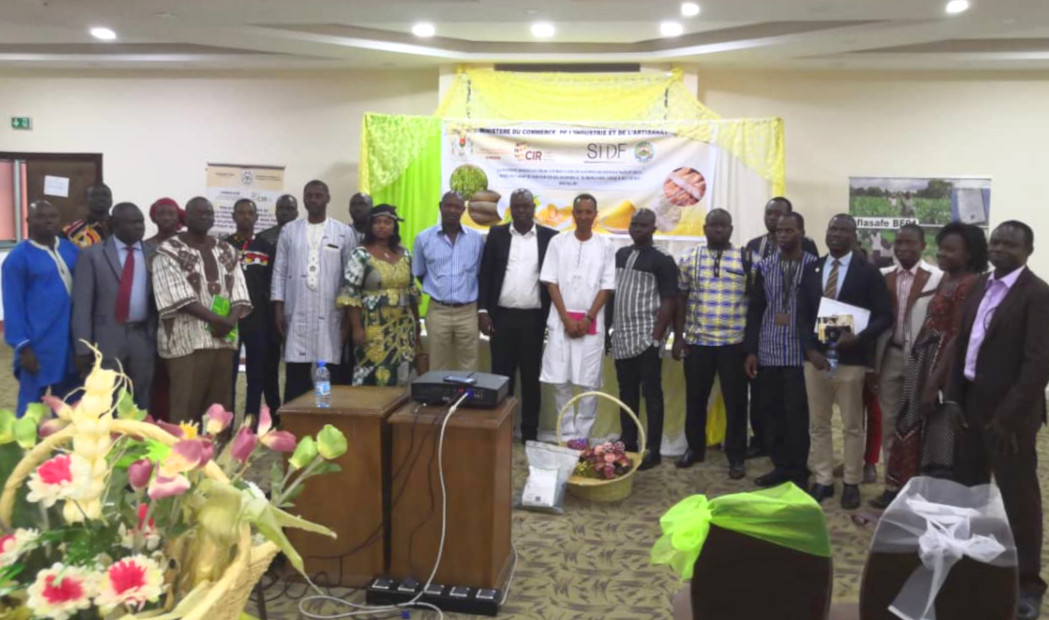
LINKS
- Previous news items from us:
- A scientifically sound star steps out: From field to lab, farmers and businesses now witness Aflasafe BF01’s power to fight aflatoxin in Burkina Faso’s food
- Royal ambassadors for Aflasafe BF01: Kings join the fight against aflatoxin in Burkina Faso (English | Français)
- Market-testing in Burkina Faso exploring Aflasafe BF01 commercialisation
- Marketing Aflasafe BF01 in Burkina Faso – Big plans from a big name
- Bright aflatoxin-safe days ahead as Aflasafe BF01 is launched in Burkina Faso
- What next after Aflasafe BF01 registration? Aflasafe means business in Burkina Faso
- Keep up with the latest on Aflasafe in Burkina Faso

